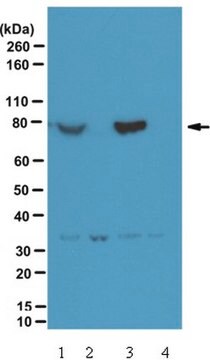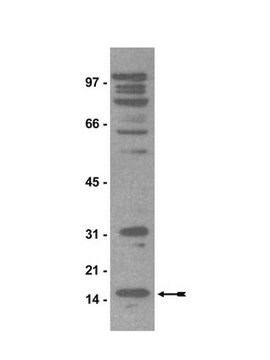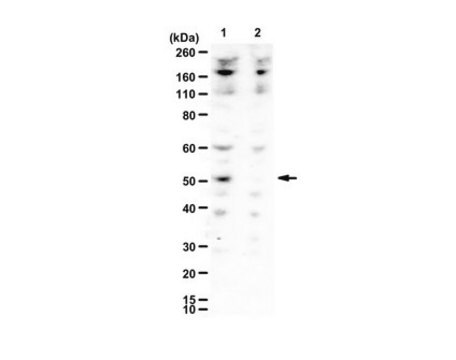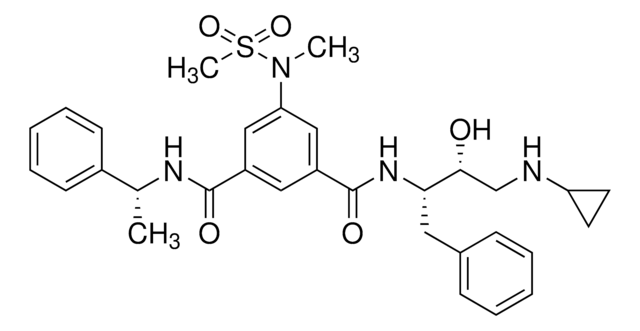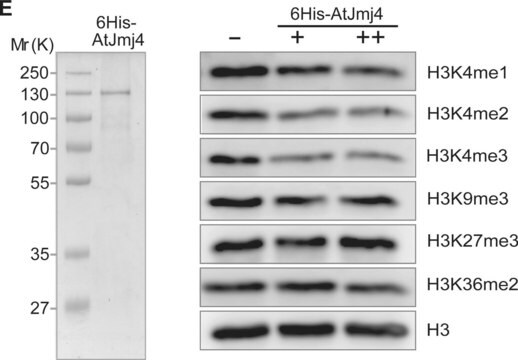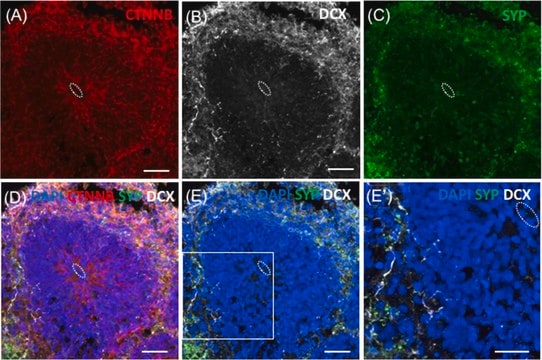07-2054
Anti-MBD1 Antibody, CT
from rabbit
Synonym(s):
CXXC-type zinc finger protein 3, Methyl-CpG-binding protein MBD1, Protein containing methyl-CpG-binding domain 1, methyl-CpG binding domain protein 1, methyl-CpG binding domain protein 1 isoform PCM1, the regulator of fibroblast growth factor 2 (FGF-2) <
About This Item
Recommended Products
biological source
rabbit
Quality Level
antibody product type
primary antibodies
clone
polyclonal
species reactivity
human
technique(s)
ELISA: suitable
western blot: suitable
NCBI accession no.
UniProt accession no.
shipped in
wet ice
target post-translational modification
unmodified
Gene Information
human ... PCM1(5108)
General description
Specificity
Immunogen
Application
This antibody has been shown by an outside laboratory to be suitable for ELISA (1:1000).
Epigenetics & Nuclear Function
Chromatin Biology
Quality
This antibody recognizes MBD1 on 10 µg of HeLa cell lysate.
Target description
Physical form
Storage and Stability
Analysis Note
HeLa cell lysate
Other Notes
Disclaimer
Not finding the right product?
Try our Product Selector Tool.
Storage Class
12 - Non Combustible Liquids
wgk_germany
WGK 2
Certificates of Analysis (COA)
Search for Certificates of Analysis (COA) by entering the products Lot/Batch Number. Lot and Batch Numbers can be found on a product’s label following the words ‘Lot’ or ‘Batch’.
Already Own This Product?
Find documentation for the products that you have recently purchased in the Document Library.
Our team of scientists has experience in all areas of research including Life Science, Material Science, Chemical Synthesis, Chromatography, Analytical and many others.
Contact Technical Service